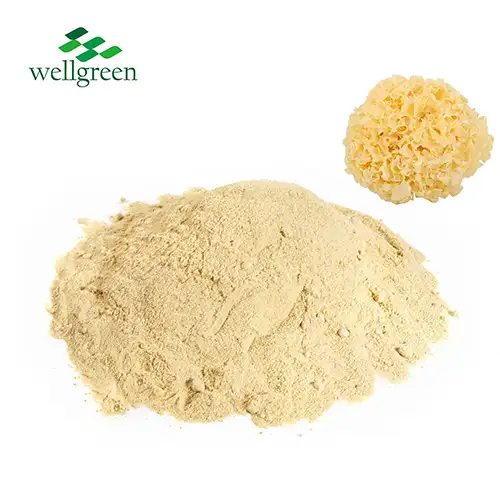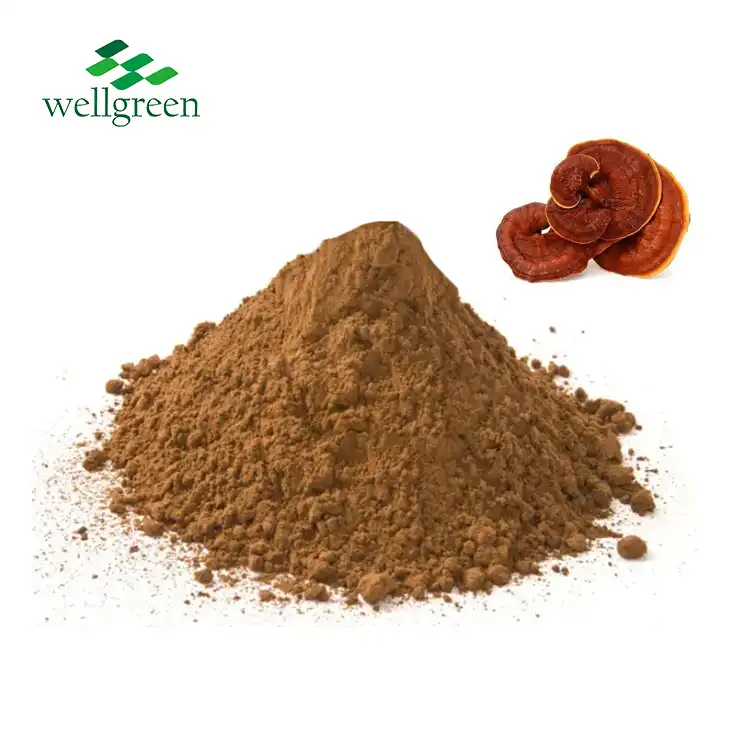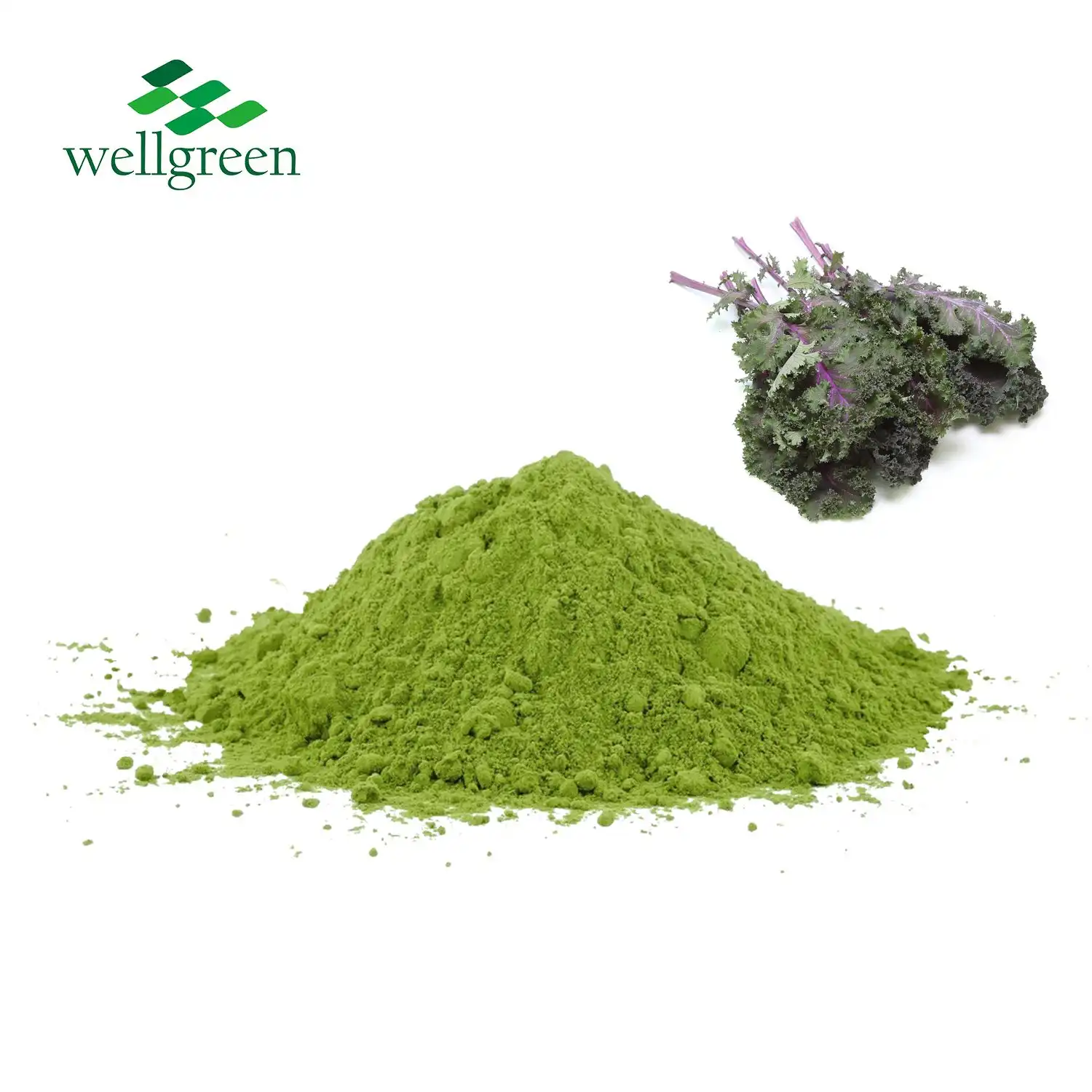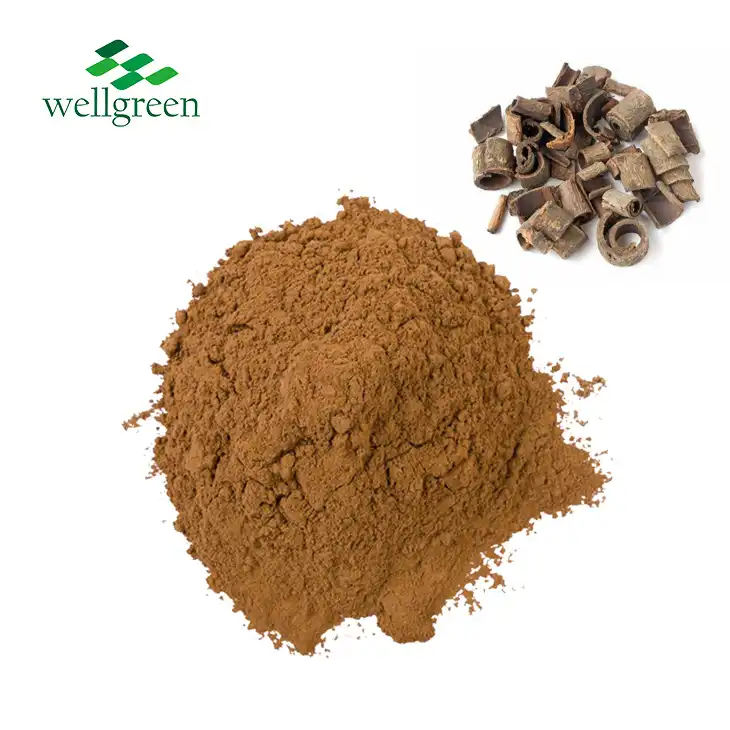What is Eucommia ulmoides used for?
2024-08-06 14:13:27
Eucommia ulmoides, commonly known as the hardy rubber tree, is a traditional Chinese medicinal herb that has been used for thousands of years. The extract from its leaves and bark is renowned for its potential health benefits, making it a subject of extensive research in recent years. This blog explores the uses of Eucommia ulmoides extract, delving into its various applications and the scientific evidence supporting its efficacy.
How Does Eucommia ulmoides Support Joint Health?
Eucommia ulmoides, commonly known as the hardy rubber tree, has been a cornerstone in traditional Chinese medicine (TCM) for its reputed benefits in strengthening bones and supporting joint health. Modern scientific research has begun to uncover the mechanisms behind these traditional uses, revealing how Eucommia ulmoides contributes to joint health through several key pathways.
Promoting Collagen Synthesis
One of the primary ways Eucommia ulmoides supports joint health is by promoting collagen synthesis. Collagen is a vital protein that provides structural support, strength, and elasticity to connective tissues such as cartilage, ligaments, and tendons. These tissues are essential for joint function and mobility. The methanol extract of Eucommia ulmoides has been shown to significantly enhance collagen synthesis, aiding in the repair and maintenance of joint tissues. Active compounds within the extract, such as geniposidic acid and aucubin, play crucial roles in stimulating collagen production. By enhancing collagen synthesis, Eucommia ulmoides helps maintain the integrity and flexibility of joint structures, thereby supporting overall joint health and reducing the risk of degenerative joint conditions.
Anti-Inflammatory Properties
Inflammation is a major contributor to joint pain and degeneration, common in conditions such as arthritis. Eucommia ulmoides exhibits strong anti-inflammatory properties that can help reduce inflammation in joints and improve mobility. Studies have shown that the extract of Eucommia ulmoides can inhibit the production of pro-inflammatory cytokines such as TNF-alpha and IL-1beta. These cytokines are key mediators of the inflammatory response and are often elevated in inflammatory joint diseases. By suppressing these cytokines, Eucommia ulmoides reduces inflammation, alleviates joint pain, and enhances joint function. This anti-inflammatory effect is crucial for preventing the progression of inflammatory joint diseases and improving the quality of life for individuals suffering from chronic joint pain.
 Supporting Bone Density
Supporting Bone Density
Eucommia ulmoides leaf extract is also known for its ability to support bone density, making it beneficial for conditions like osteoporosis, which often co-occur with joint problems. Research involving animal models has demonstrated that Eucommia ulmoides can enhance bone mineralization and improve bone strength. One of the mechanisms through which it achieves this is by modulating the OPG/RANKL system in osteoblastic cells. The OPG/RANKL system is crucial for regulating bone remodeling and maintaining bone density. By influencing this system, Eucommia ulmoides promotes the activity of osteoblasts (cells responsible for bone formation) and inhibits osteoclasts (cells responsible for bone resorption), leading to stronger and healthier bones. This bone-strengthening effect is particularly important for preventing fractures and maintaining overall skeletal health, which is intrinsically linked to joint health.
Additional Benefits
Beyond these primary mechanisms, Eucommia ulmoides offers additional benefits that support joint health. Its antioxidant properties help reduce oxidative stress, a factor that can contribute to joint inflammation and degeneration. By neutralizing free radicals, Eucommia ulmoides protects joint tissues from oxidative damage, further supporting joint health and function. Additionally, the extract has been found to improve blood circulation, which can enhance nutrient delivery to joint tissues and promote their repair and regeneration.
Can Eucommia ulmoides Help Manage Blood Pressure?
Eucommia ulmoides, a tree native to China, has gained recognition for its potential in managing hypertension, or high blood pressure. Research, including both animal studies and clinical trials, has explored the mechanisms and efficacy of Eucommia ulmoides in reducing blood pressure, offering promising insights into its role as a natural remedy for hypertension.
 Vasorelaxation and Nitric Oxide Production
Vasorelaxation and Nitric Oxide Production
One of the primary mechanisms through which Eucommia ulmoides helps manage blood pressure is by inducing vasorelaxation. Vasorelaxation refers to the relaxation of blood vessel walls, which leads to improved blood flow and reduced vascular resistance. Eucommia ulmoides extract has been found to enhance vasorelaxation through the endothelium-dependent production of nitric oxide (NO). Nitric oxide is a key molecule involved in regulating vascular tone by dilating blood vessels. Animal studies have demonstrated that Eucommia ulmoides extract can increase nitric oxide production, facilitating vasodilation and thereby lowering blood pressure.
Clinical Evidence
Clinical trials have provided further support for the antihypertensive effects of Eucommia ulmoides. In controlled studies involving human participants, consumption of Eucommia ulmoides extract has been associated with significant reductions in blood pressure. These studies indicate that the extract can effectively lower both systolic and diastolic blood pressure levels in hypertensive individuals. Importantly, these reductions were achieved without significant adverse effects, highlighting the potential of Eucommia ulmoides as a safe and well-tolerated natural remedy for hypertension.
Interaction with Hypertension Medications
While Eucommia ulmoides shows promise in managing blood pressure, it is essential to consider potential interactions with conventional hypertension medications. Individuals currently taking blood pressure medications should consult their healthcare providers before incorporating Eucommia ulmoides into their regimen. This precaution ensures that there are no adverse interactions between the herbal supplement and prescribed medications, optimizing the safety and effectiveness of treatment.
Does Eucommia ulmoides Have Neuroprotective Benefits?
Recent studies have explored the neuroprotective properties of Eucommia ulmoides, highlighting its potential in supporting brain health and cognitive function.
Antioxidant Effects
Eucommia ulmoides is rich in antioxidants, compounds known for their ability to combat oxidative stress - a significant factor implicated in neurodegenerative diseases such as Alzheimer's and Parkinson's. Oxidative stress leads to the production of reactive oxygen species (ROS), which can damage neurons and contribute to disease progression. Studies have shown that Eucommia ulmoides leaf extract can effectively reduce ROS levels and inhibit neuronal cell death in experimental models. This protective effect is primarily attributed to active compounds within the extract, including geniposidic acid and chlorogenic acids. By neutralizing free radicals and enhancing cellular antioxidant defenses, Eucommia ulmoides helps shield brain cells from oxidative damage, thereby potentially slowing down the onset or progression of neurodegenerative conditions.
Enhancing Cognitive Function
Animal studies suggest that Eucommia ulmoides may improve cognitive function by protecting neurons from damage. For example, the extract has demonstrated the ability to mitigate amyloid-beta-induced cytotoxicity - a hallmark of Alzheimer's disease - in neuronal cells. Additionally, Eucommia ulmoides has been observed to reduce calcium influx and lactate dehydrogenase leakage, mechanisms that contribute to its neuroprotective effects. These findings indicate that Eucommia ulmoides has the potential to support cognitive health by preserving neuronal integrity and function, crucial for maintaining memory and cognitive abilities.
Potential for Treating Neurodegenerative Diseases
While current research supports the neuroprotective benefits of Eucommia ulmoides in experimental models, further studies are needed to validate its efficacy and safety in treating neurodegenerative diseases in humans. Ongoing research aims to elucidate the precise mechanisms through which Eucommia ulmoides exerts its neuroprotective effects and to evaluate its therapeutic potential in clinical settings. Continued investigation into the pharmacological actions of Eucommia ulmoides may pave the way for novel therapeutic strategies for neurodegenerative disorders, offering hope for improved management and treatment outcomes.
Conclusion
Eucommia ulmoides is a versatile herb with a wide range of potential health benefits. From supporting joint health and managing blood pressure to offering neuroprotective effects, this traditional Chinese medicinal plant holds promise in various therapeutic areas. While scientific research continues to uncover the full extent of Eucommia ulmoides leaf extract's benefits, Eucommia ulmoides remains a valuable natural remedy with a rich history of use.
References
1. Verywell Health. (2023). Eucommia: Benefits, Side Effects, and Preparations.
2. Biomed Central. (2023). Traditional application and modern pharmacological research of Eucommia ulmoides Oliv.
3. Drugs.com. (2023). Eucommia Uses, Benefits & Dosage.






